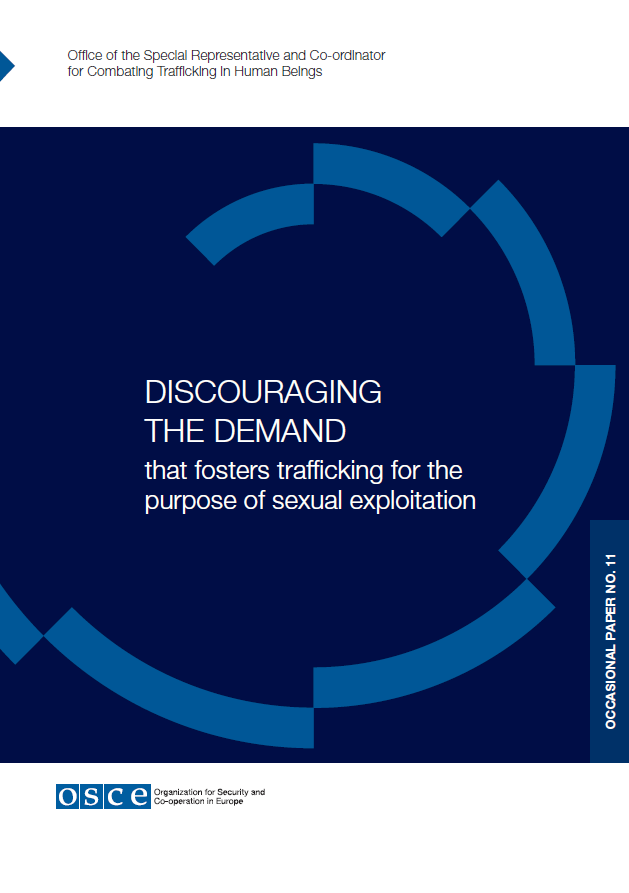National Human Trafficking Hotline At-A-Glance
PublicationsAn at a glance document providing information about the services of the National Human Trafficking Hotline.
This Occasional Paper highlights the importance of addressing the demand that fosters trafficking for sexual exploitation, in particular the exploitation of the prostitution of others. In doing so, it puts a spotlight on the role of demand in encouraging exploitation and causing harm to victims; outlines the scope of the international obligations and commitments of States to discourage demand; analyses the ways in which States have responded to these obligations and commitments in their criminal justice and prevention practices; and offers recommendations on how to better incorporate demand into national efforts. The primary aim of the paper is to support and enhance the implementation of State-led responses to demand.

An at a glance document providing information about the services of the National Human Trafficking Hotline.
Inequality is rampant across the global economy, and the agro-food sector is no exception. At the top, big supermarkets and other corporate food giants dominate global food markets, allowing them to squeeze value from vast supply chains that span the...Read More
GENERAL CONTEXT The construction industry relies on large numbers of low-skilled workers and, as such, is a major provider of formal employment opportunities around the world. In the Gulf States in particular, the construction boom has attracted ...Read More
Human trafficking has long-lasting implications for the well-being of trafficked people, families, and affected communities. Prevention and intervention efforts, however, have been stymied by a lack of information on the scale and scope of the probl...Read More